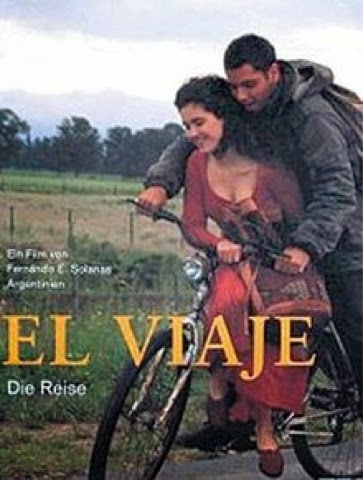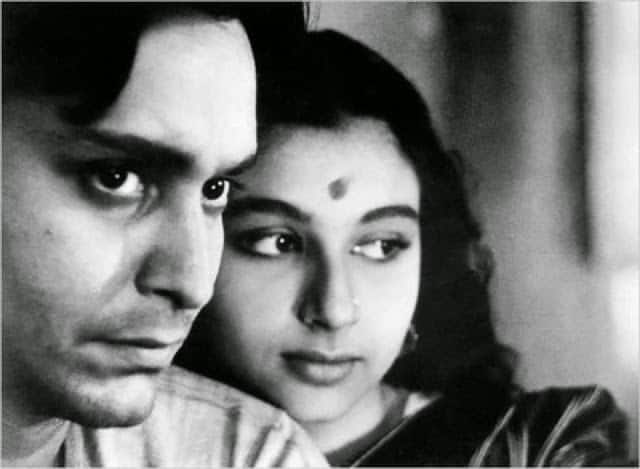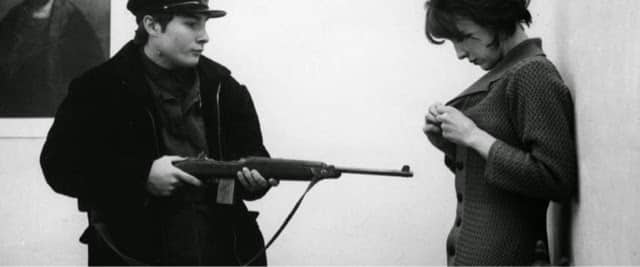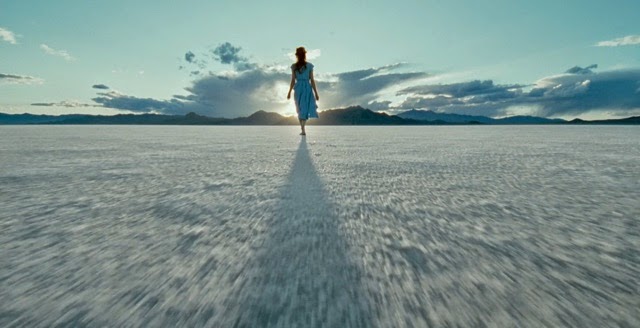
The Journey (Fernando E. Solanas, 1992)
March 22, 2010
The World Of Apu (Satyajit Ray, 1959)
March 22, 2010I don’t feel any attraction to Godard. I understand his work as intellectual, but it never speaks to me in any significant way. I know that’s like standing in a church and declaring that you don’t believe Jesus died on the cross but… The reason I believe is the fact he’s purposely non-narrative. I see filmmaking as a storytelling medium. Once, a teacher of mine asked the class what we thought were the origins of filmmaking. Someone said photography, someone else Muybridge. I answered our tradition of storytelling. The teacher laughed at me; he said it was going too far. I don’t think so. When Einstein theorized on nuclear energy, he envisioned it could give mankind a quasi-infinite amount of energy with vast reaching applications. Then the U.S. bombed Hiroshima and Nagasaki. Muybridge wanted to analyze movement. Now we’ve got film. They are another appropriation of our need for communication, our need to tell stories, just like the Army appropriated Einstein’s nuclear theory and killed. Like cave walls. Like campfire stories. Like comic books.
I remember the first films I saw of Godard in film school were Bande à Part and Deux ou trois choses que je sais d’elle. I don’t remember much about the first one (maybe a kidnapping story or a heist?) but I remember Deux ou Trois choses … because its subject matter, consumption in contemporary society, attracted me. It was difficult, but I found it more engrossing than Les Carabiniers. That movie was as difficult as Deux ou Trois choses …, even more so since I didn’t find enough to anchor me to it. Not like watching paint dry but close. I guess that’s the point, isn’t it? That’s his point. He wants you uninvolved. Not because he wants you to know you’re in a movie, like Brecht intended, but because he wants you to know he’s in charge, he’s in control. The spectator relinquishes his control to the filmmakers in the hopes that he will make him experience what he cannot himself. In Les Carabiniers, Godard is in total control, from playing with our scopophilic gaze in the makeshift rape scene or denying us any kind of narcissistic satisfaction, the two driving forces behind the cinema as a spectacle according to Laura Mulvey. My point is, how can you tell a story if you alienate your audience?
What I see as interesting is the institution that Godard has become. When they first started in Les cahiers du Cinema, Godard and Truffaut wanted to separate from convention, from the spectacle filmmaking of the time, of the idea of an invisible camera auteur to one of the artist at work. Their reactionary stand has now created a self-conscious cinema. If in the 1950s, when filmmakers regressed to a more theatrical cinema, Godard’s filmmaking was a welcome breath of fresh air, I think now that he has been institutionalized, he cannot affect contemporary filmmaking as he did in his time; he can only serve as a point of reference. Filmmaking nowadays is stagnant; relentlessly devouring its own tail like the Ouroboros, cannibalizing itself. In our consumer society where, to paraphrase Baudrillard, you are not defined as an individual if you refuse to conform to the imperative of consumption, and recycling is a necessity, then it is impossible to see a work without its influences, a serpent without its tail. Once a filmmaker like Godard is institutionalized, his cannibalization becomes socially accepted and acceptable, even though it goes against the filmmaker’s original intent. It’s ironic and tragic.
More info on IMDB
- Black Panther: A Perspective - March 20, 2018
- Seven Pounds (Gabriele Muccino, 2008) - May 5, 2015
- Honeymoon (Leigh Janiak, 2014) - January 30, 2015



